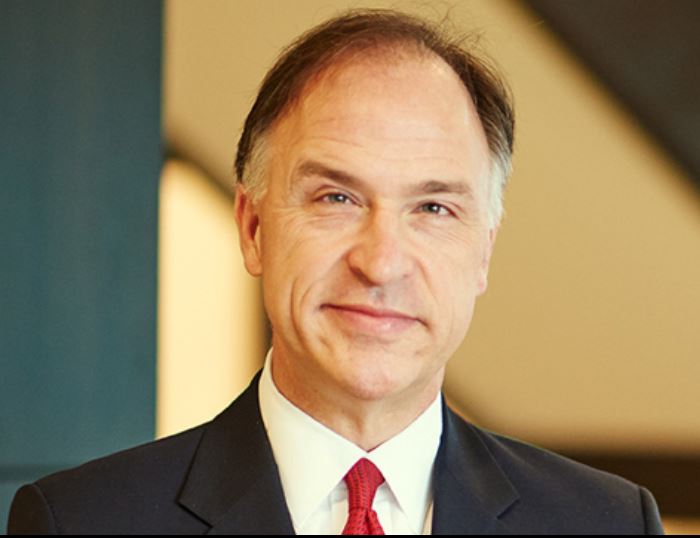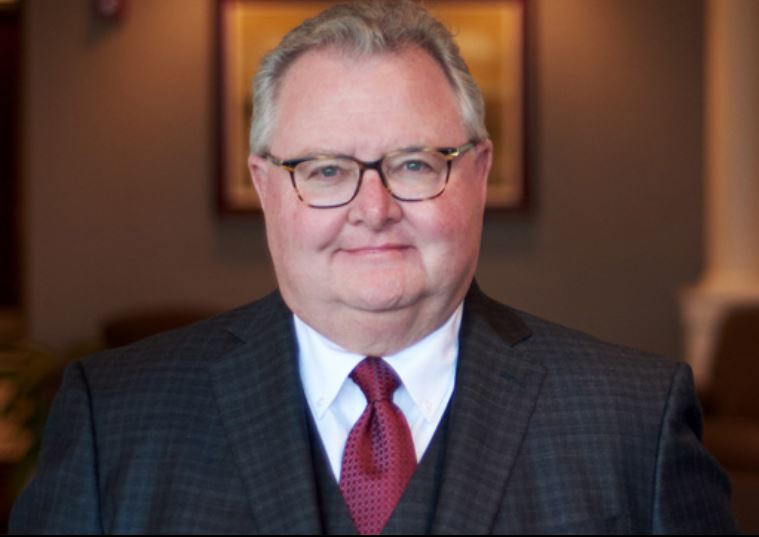In a new "On Leadership", we speak with Timothy Volpe & Gif Thornton of Adams and Reese about the value (and difficulty) of sticking to your strategic plan
We continue our bi-monthly column, On Leadership, created by Rose Ors for Thomson Reuters. Each installment will feature conversations with law firm CEOs or Managing Partners about how they are leading their law firms in today’s dramatically changing and highly competitive legal industry.
In this installment, Rose Ors speaks with Timothy Volpe, Executive Committee Chair, and Guilford (Gif) Thornton, Managing Partner of Adams and Reese about the value of sticking to your strategic plan, fostering a collaborative culture, and making today (and tomorrow) a good day.
Rose Ors: Your management structure splits responsibility for developing strategy and implementing it. Could you describe how the firm is structured and the benefits of that approach?
Tim Volpe: Our executive committee — composed of six partners who serve three-year terms — functions as a board of directors and is responsible for setting strategy. The committee develops our five-year strategic plan and selects a managing partner to implement that plan. They also select a chair on an annual basis from among the committee members.
The managing partner is freed of all client responsibilities and focuses solely on managing the firm, including the appointment of practice group leaders. The managing partner is assisted by a professional staff who oversee operations — finance, human relations, marketing, and technology. The team reports to a chief operating officer, who in turn reports to the managing partner.

Many law firms combine the role of chairman and managing partner. We separate those roles because it promotes a more dynamic leadership corps and a clearer line between policy-making and implementation.
Rose Ors: What was the rationale for setting only a three-year term for the executive committee members and an annual term for the chair?
Gif Thornton: A distinguishing characteristic of our firm is that we offer many leadership opportunities and ways for new firm members to have their voices heard. The shorter terms allow for the influx of new ideas and viewpoints. To ensure leadership continuity we stagger the terms such that two members of the executive committee roll on and two roll off each year. The chair can be elected to more than one term and typically serves consecutive terms.
One of the things that attracted me to the firm initially was the opportunity to find my way into leadership. I joined in 2005, was elected to the Executive Committee immediately and in 10 years was the managing partner. Tim joined the firm in 2013 and, within six years, was the chair.
Rose Ors: When you became managing partner Gif, what were your initial priorities?
Gif Thornton: My first priority was to transition my practice and ensure that my clients’ interests were advanced in the process. The truth is, that took a couple of years.
My other priorities were determined by our five-year strategic plan. Our firm closely adheres to our strategic plan — a fact that legal consultants who we have worked with tell us is rare. Having this discipline was a real benefit for me coming into the managing partner role. The priorities outlined in the plan are essentially my to-do list for the upcoming year. That has been the case every year since.
Rose Ors: What are the priorities for each of you now?
Tim Volpe: My top priority has been developing our new strategic plan. We are trying to look ahead as best we can while dealing with the uncertain present. We recently were able to conduct the first face-to-face meetings of our executive committee and strategic planning committee. Meeting in person certainly has helped us push the plan to the finish line.
Gif Thornton: My priorities are two things that our current strategic plan could not have foreseen. First, to continue to flourish as a firm amid this pandemic. Second, to capture the lessons learned as they are happening.
We decided early on that we needed to embrace the new normal, whatever it is, instead of trying to cling to survival until things get back to “normal.” Our mindset is to make today a good day, and when things are different tomorrow, make that a good day, too.
Rose Ors: What changes have you made in response to the pandemic, and what are some of the positive outcomes of these changes?
Gif Thornton: Working remotely was a significant change for us. Having our staff work from home was of particular concern because we did not want to risk anyone working long hours and not receiving proper overtime compensation.

Another concern was how to prevent anyone at the firm from feeling isolated. So, we changed how we communicate. We now have a 15-minute Wednesday morning virtual meeting of the entire firm. We update everyone on the firm’s current issues and feature a couple of people talking about what is happening with them personally. It is a small way to humanize this collective experience and remind everyone we are in this together, even when we are apart physically.
A positive outcome that I particularly appreciate as a managing partner is that the crisis has caused the firm’s partners to be more responsive to management policies, requests, and guidelines. Before the pandemic, the partners might have been casual about a billing deadline or the need to complete a cybersecurity prevention exercise. Now all the partners have a heightened sense of the importance of doing these tasks. The collective feeling is, “We’re facing an external threat, and we need to do our part to overcome the threat.”
Rose Ors: How would you describe the firm’s culture?
Tim Volpe: The hallmark of our culture is collaboration and teamwork. We manage the firm by practice groups rather than by individually measuring our 18 offices’ financial results. We encourage cross-selling and working among all of our offices. I think one year Gif told me I had worked with 42 different lawyers in the firm despite my office in Jacksonville having only eight lawyers.
I experienced the benefits of teamwork within my first month of joining the firm. A public relations client in Jacksonville wanted to use a particular song in advertising the Florida Lottery. I called one of our Nashville lawyers who worked on Music Row. He traced how ownership rights to the song had been transferred and knew how to obtain approval to use the song. My client thought I was a hero.
Rose Ors: How would each of you describe the other’s leadership style?
Tim Volpe: Gif’s is analytic. He is also incredibly astute about political issues. He can maneuver through a thicket of people’s differing views in a sensitive way, but with a backbone to it.
Gif Thornton: Tim is a good listener who thinks before he speaks, a trait that lends great credibility to what he says when he does speak. He does a terrific job of eliciting input from each person in the room and getting them to talk candidly. No one can complain after a meeting that they could not say what they wanted to say. That leads to good decision-making.
This interview has been edited and condensed by Rose Ors.






